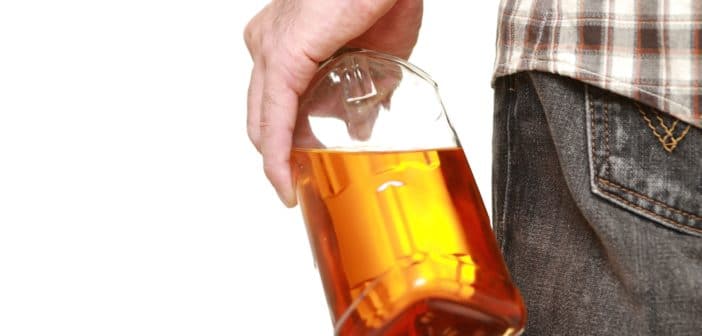This post was originally published on December 11, 2014.
Not many people understand the difference between physical addiction and alcoholism. While many alcoholics do become physically addicted to alcohol, this is not a requirement for alcoholism. I never went to detox to get sober—I didn’t have to because my drinking habit hadn’t manifested into a physical dependence (yet). I didn’t wake up with the shakes or get the DTs. I never craved a drink in the morning or even every night. I wasn’t physically addicted to alcohol but there was no question that I was emotionally dependent on it.
The same goes for drug addiction. Anyone who abuses Oxycontin or takes it for longer than the suggested time is going to get physically addicted—it’s just biological. A person doesn’t need to have “the ism” to get addicted but they may find they have it when they try to quit and can’t.
Heavy Drinking Does Not An Alcoholic Make
I’ve been thinking about this more than usual since the CDC’s study which concluded that just because you drink heavily doesn’t mean you are an alcoholic. Cool—so can all the people who have been losing sleep over the potential label of “alcoholic” can now rest assured that there may be a chance they aren’t? Sadly, if you are losing sleep over the possibility, chances are you didn’t make the majority cut. Heavy drinkers don’t seriously question whether or not they have alcoholism because they probably aren’t suffering real consequences as a result of their drinking. They might get a DUI or wind up in jail after a fight but this happens once or twice in a lifetime, not a couple of times in a year.
Recently, an old friend of mine decided to quit drinking. He initially vowed to take 30 days off just to see if he could do it—he couldn’t, but I don’t think that makes him an alcoholic. It’s very hard to break a habit of any kind, let alone one that is as deeply ingrained in our social lives as drinking. If a decision of this kind is not taken very seriously and not made a top priority, it will be close to impossible to stick to. I am never able to lose weight unless I really commit to counting calories, no matter how inconvenient the task may be. I will most likely need to rearrange my calendar, take a leave of absence from my social life and map out a disciplined daily eating plan if I have any hopes of succeeding. This doesn’t make me a food addict—it makes me a human being (okay, an American). I can’t casually decide to just start eating better or less—if it were that effortless, I wouldn’t have gained the weight in the first place. The same thing goes for quitting drinking.
Loaded Labeling
So after a few 30-day flops, my friend conceded to attend 12-step meetings. He didn’t want to be a part of the program because he found the meetings and the people in them to be depressing, but he liked having a place to go for support on his new journey. He started attending meetings regularly and came to believe that he was, in fact, an alcoholic as it is described in the 12-step literature. However, he wasn’t cool with the label of “alcoholic” because of the stigma attached to it. He wasn’t willing to call himself an alcoholic to people outside the program as he felt it would negatively affect his dating life and possibly his career.
Now, of course, my friend wasn’t the first person to feel this way. One of the main reasons 12-step groups attach the word “Anonymous” to their name is because of this very issue—one that was much more prevalent in 1934, when the fate of an alcoholic was limited to the sanitarium or the morgue—so I have sympathy for his conflict. But it’s kind of hard not to take his perspective—that most people see recovering alcoholics as damaged goods—a little personally. After nearly a decade of friendship, it felt as if I got an unintentional glimpse of how he has really viewed me all these years: as a loser.
Many of us put way too much weight on labels of all kinds—job title, brand name, health diagnosis, relationship status—and most of the time it just makes us miserable. It sets the foundation for comparing yourself to others and while I suppose it might be nice for the 90% of heavy drinkers to know they have the label of non-alcoholic, they aren’t the ones who care. It’s the 10% who grab a hold of this factoid and obsesses over it as if the fate of their life depends on it.
Sponsored DISCLAIMER: This is a paid advertisement for California Behavioral Health, LLC, a CA licensed substance abuse treatment provider and not a service provided by The Fix. Calls to this number are answered by CBH, free and without obligation to the consumer. No one who answers the call receives a fee based upon the consumer’s choice to enter treatment. For additional info on other treatment providers and options visit www.samhsa.gov.





